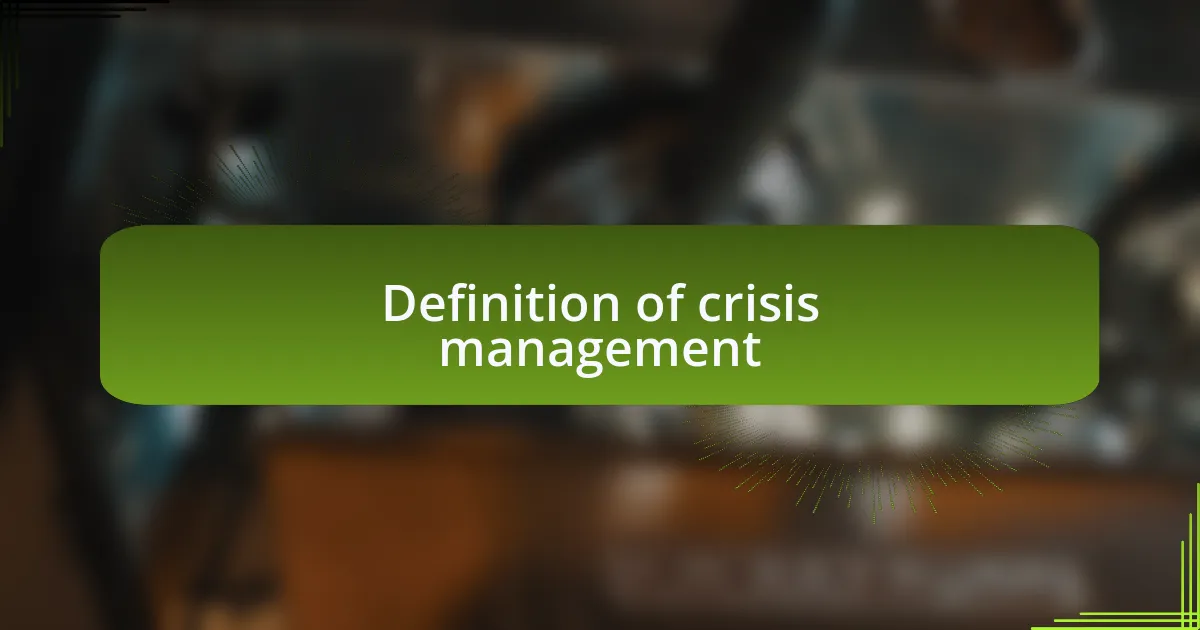Key takeaways:
- Crisis management involves addressing unexpected disruptive events that threaten organizational stability.
- Effective crisis management requires proactive planning and quick reaction to minimize negative impacts.
- Key elements include identifying risks, developing communication plans, and making decisive choices under pressure.
- A structured approach to crisis management fosters resilience and preparedness within an organization.

Definition of crisis management
Crisis management is essentially the process of dealing with unexpected and disruptive events that threaten an organization’s stability. I’ve encountered moments in my career where a sudden technical failure could have spiraled into chaos, but applying a structured approach allowed me to navigate through those stormy waters. It raises an interesting question: how often do we prepare for the unexpected in our professional lives?
In my experience, effective crisis management combines proactive planning and quick reaction. When faced with a crisis, I remember one pivotal instance where our team had only hours to respond to a major system outage; by relying on our established protocols, we minimized downtime significantly. It’s fascinating to consider how a well-thought-out strategy can transform potential disasters into manageable challenges.
At its core, crisis management involves identifying potential risks, developing communication plans, and making decisive choices under pressure. I often reflect on how different my outlook would be without these practices; embracing this mindset not only bolsters resilience but cultivates a culture of preparedness. Isn’t it intriguing how a single framework can change the course of events, allowing us to emerge stronger?